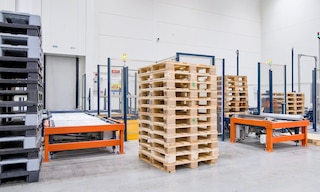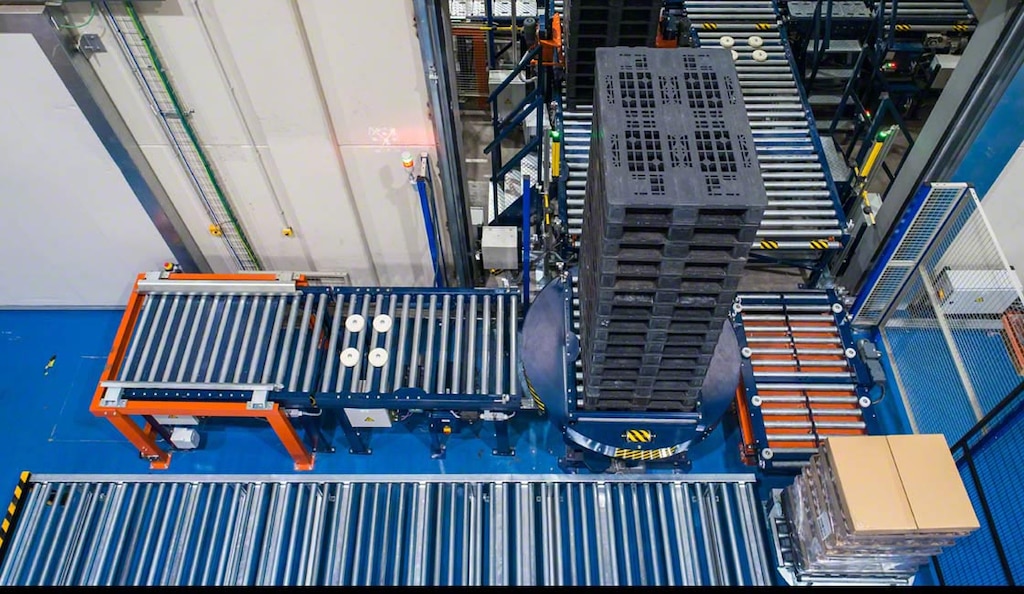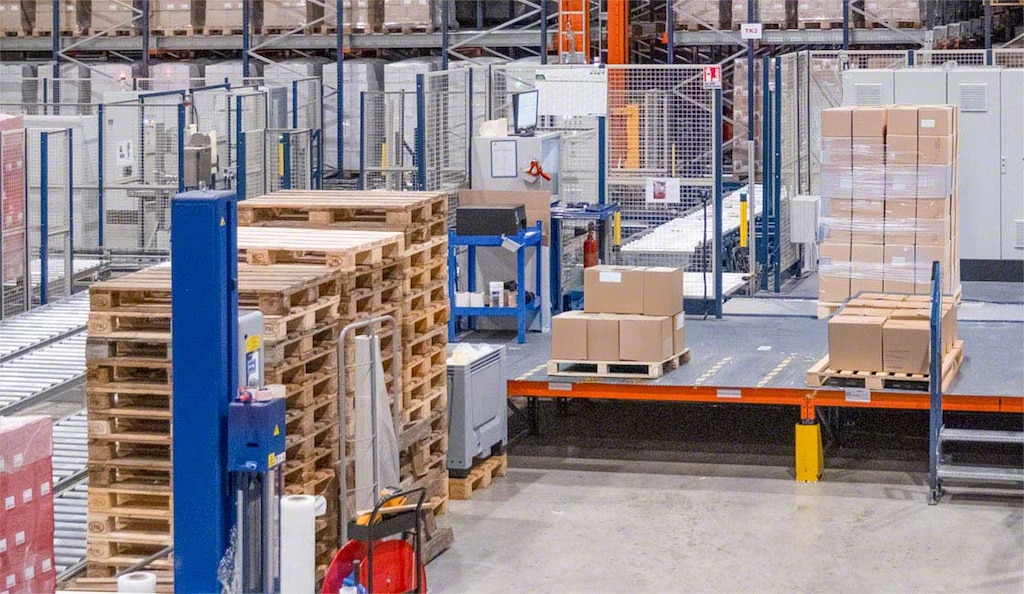
Pallet recycling and sustainability
Pallet recycling is essential for reducing a company’s environmental impact. Widely used in goods storage and transport, pallets contribute to sustainable logistics through various recycling processes.
What is pallet recycling?
Pallet recycling consists of transforming used or damaged pallets into new ones or raw materials for other products. The process may involve dismantling them or reprocessing the recovered wood or plastic for new purposes.
Pallet recycling and the circular economy
A pallet’s lifecycle doesn’t end after a few trips. Recycling allows companies to recover and leverage the materials. Wooden pallets can be turned into wood chips for panels or composite materials, while plastic pallets are shredded and reprocessed into new items. This approach supports environmental goals by lowering carbon emissions, promoting sustainable practices and contributing to the circular economy.
Recycling wooden pallets
Using recycled pallets limits energy consumption by avoiding the need to manufacture new ones. At the end of their lifespan, wooden pallets can be turned into wood fibres, stove chips or pellets. This avoids the use of virgin raw materials, helping conserve forests and other natural resources.
Recycling plastic pallets
Plastic can also be repurposed to create new pallets, offering a durable, eco-friendly alternative. Often sourced from post-industrial waste, the recovered plastic is processed to create strong plastic pallets that can be reused multiple times.
Recycled plastic pallets have certain advantages over wooden ones. They’re more moisture-resistant, extremely durable and hold up better outdoors. They also tend to be lighter, helping minimise the carbon footprint of goods transport.

Tips for pallet recycling
When taking pallets to a recycling facility, follow these best practices for correct processing:
- Remove debris. Check that pallets are free of nails, staples and contaminants (e.g. oil spills or chemicals) to prevent environmental pollution.
- Sort by type. Organise pallets by material and condition to streamline recycling.
- Follow safety standards. Repairs and reconditioning should comply with quality and regulatory requirements.
Likewise, companies can partner with specialised pallet recovery and recycling providers. Some offer take-back programmes or reconditioning services, a growing example of reverse logistics.

Benefits of recycled pallets in logistics
Integrating the sustainable practice of pallet recycling into logistics operations brings several advantages:
- Lower raw material demand. Using recycled pallets curbs the demand for wood and lessens pressure on forest ecosystems, combating deforestation.
- Cost savings. Recycled pallets are generally more affordable than new ones. Before being sold, they’re inspected, repaired and reconditioned. When sourced from reliable distributors, they can lead to long-term savings.
- Smaller environmental footprint. Recycling keeps pallets out of landfills, helping protect soil and water from pollution. This practice enables companies to reduce their carbon footprint and comply with certain regulations. Moreover, it lowers greenhouse gas emissions by cutting the energy needed to produce new pallets.
- Multiple applications. Recycled pallets are employed across warehouses and distribution centres. But they’re not limited to logistics operations. In construction, they’re used to make furniture, cladding and structural elements. Pallets can also be recycled into decorative items, DIY projects and garden elements.
Implementing pallet recycling helps companies optimise resources and meet growing sustainability expectations from the market and governments. Combined with traceability systems that monitor product lifecycles in the warehouse, pallet recycling can further reduce waste and inventory shrinkage.
Looking for a warehouse management system (WMS) to streamline your business? At Mecalux, we can help. Contact us and we’ll show you how to improve your supply chain, cut costs and boost your market position.
